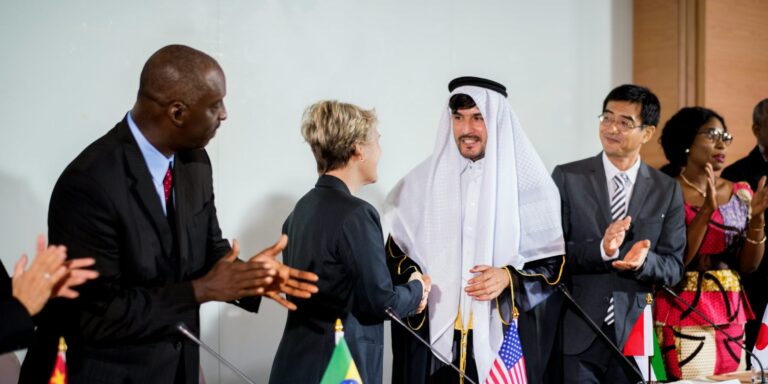Luanda, Angola – June 22, 2025 – The 17th U.S.–Africa Business Summit opened this week in Luanda, Angola, drawing over 1,500 delegates from across the globe. Co-hosted by the Corporate Council on Africa (CCA) and the Government of Angola, the event underscores a growing strategic alliance between the United States and African nations, focusing on strengthening economic ties through trade, investment, and public-private partnerships.
The summit brings together African heads of state, senior U.S. government officials, and executives from leading multinational corporations and emerging African enterprises. This convergence of stakeholders highlights the shared goal of fostering sustainable economic growth and regional development.
Held under the theme “Pathways to Prosperity: A Shared Vision for U.S.–Africa Partnership,” the summit is widely viewed as a pivotal moment for enhancing bilateral and multilateral economic collaboration. Angola, currently serving as chair of the African Union and celebrating its 50th year of independence, provides a symbolic and strategic backdrop for this high-level gathering.
Throughout the week, attendees are engaging in over 40 sessions, including plenary panels, sector-specific discussions, and private deal rooms. Key topics on the agenda include digital transformation, energy infrastructure, supply chain resilience, and innovations in agriculture. The summit places particular emphasis on practical outcomes, with several memorandums of understanding (MOUs) already signed in agri-processing, clean energy, and infrastructure development.
Among the key U.S. entities represented are the Departments of State, Commerce, and Energy, along with the U.S. Development Finance Corporation and the Export-Import Bank. On the African side, delegations from over a dozen countries, including Ethiopia, Botswana, and the Democratic Republic of the Congo, are participating at the highest levels.
The CCA, which has organized the summit since its inception in 1997, is promoting this year’s event as a cornerstone for redefining U.S.–Africa engagement. “This is not just about dialogue; it’s about action,” said CCA President and CEO Florizelle Liser. “We’re seeing real momentum in terms of deals being made and frameworks being established for future ventures.”
One of the highlighted initiatives is the Lobito Corridor project, aimed at linking Angola’s coast to regional economic zones through upgraded transport and logistics infrastructure. U.S. and African partners are discussing investment mechanisms, asset recycling strategies, and blended finance models to support this and similar infrastructure efforts.
The summit also spotlights technology and innovation, with sessions focusing on AI-driven economic development, digital infrastructure expansion, and support for women and youth entrepreneurs. Representatives from African tech startups and U.S. venture capital firms are exploring collaborative opportunities to accelerate digital transformation across the continent.
Agriculture, a critical sector employing over 60% of Africa’s workforce, is another focal point. Experts are examining ways to modernize food systems, enhance value chains, and boost climate-resilient agri-tech investments. Several U.S. agribusiness firms are partnering with African cooperatives and ministries to pilot new technologies and logistics networks.
The event signals a shift in U.S. foreign policy—moving from traditional aid to economic engagement. State Department officials reiterated the administration’s goal to foster relations based on mutual benefit. “We are here as partners, not patrons,” said Troy Fitrell, U.S. Ambassador to Angola. “This summit is a blueprint for what equitable and dynamic international cooperation looks like.”
Looking ahead, the next few days will see further deal-making and framework setting, with outcomes expected to shape the trajectory of U.S.–Africa economic relations for years to come. The collaborative spirit in Luanda reflects a broader continental ambition: to harness economic partnership as a catalyst for prosperity and stability.



